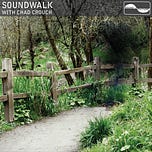We are in Austin, TX again, at Onion Creek Metropolitan Park on a mild spring morning. It’s April 5, 2024.
Onion Creek Greenway Trail follows a large “S” curve along Onion Creek on the semi-suburban south side of Austin, Texas. Located about two miles from the closest strand of Austin’s web of highways, it is one of the more serene riparian destinations within the city limits.
It’s a popular place to walk dogs or go for a jog. The trailhead I arrived at even had a barista / food cart. Getting off the main trail will afford the visitor a quiet, intimate experience with the creek and wildlife. There’s a fair amount of human history here too if you know where to look, dating back thousands of years to the El Camino Real period and presence of Coahuiltecan Native Americans.
Onion Creek Metropolitan Park owes its existence to a more recent history of ill-fated development and flood events culminating in The Halloween Flood of 2013:
Austin received over 10 inches of rain during a single 24-hour period. Onion Creek rose by 11 feet in a mere 15 minutes and eventually hit an all-time high of 41 feet (topping a 1921 record by three feet). Water coursed through it at twice the velocity of Niagara Falls—enough to easily topple houses and trees, and move multi-ton objects like boulders and automobiles. The Halloween flood killed five people and damaged over 1,200 houses.
The houses that once stood in the area were demolished but a patchwork of “ghost streets” that once served them remain, offering visitors a view of the slow process of residential re-wilding (and/or recreational redevelopment).


Unlike the ghost towns of the previous century, which were built to extract one local resource, these ghost streets may offer a window into the future, where residential areas are abandoned after flood events owing to more frequent and intense storms, or erosion from sea level rise, or conversely, water scarcity making some places simply too impractical to inhabit.
It’s a reminder to live in the moment, to cultivate non-attatchment to things, and consider the adaptive strategies of wildlife.
Despite its origin near the site of a <1000 home displacement area, I think this is one of the most objectively pleasing and reassuring soundwalks I have captured. The soundscape here gives so generously. It has everything: birdsong, insect stridulations, amphibian choruses, breezes in the canopy, flowing grasses, and gentle creek sounds, near and far. If you’re looking for the most accessible and welcoming soundwalk in my repertoire (of about 50 so far) this might be the one. For that reason, I’m setting this post/episode to unrestricted. You might even consider throwing caution to the wind and pressing this button, to help others discover it:
The melodies in my score favor simple, reassuring harmonics and an array of instrument voices that blend with the gentle soundscape and woody acoustics of the landscape.
Thank you for reading, thank you for listening, thank you for your curiosity! Be well, carpe diem, and all that jazz. For real.
Onion Creek Soundwalk is available on all streaming platforms (Spotify, Apple, Tidal, Amazon, YouTube…) Friday, July 19th.
Related:
Why Does it Flood in Southeast Austin? segment from Austin PBS














Share this post